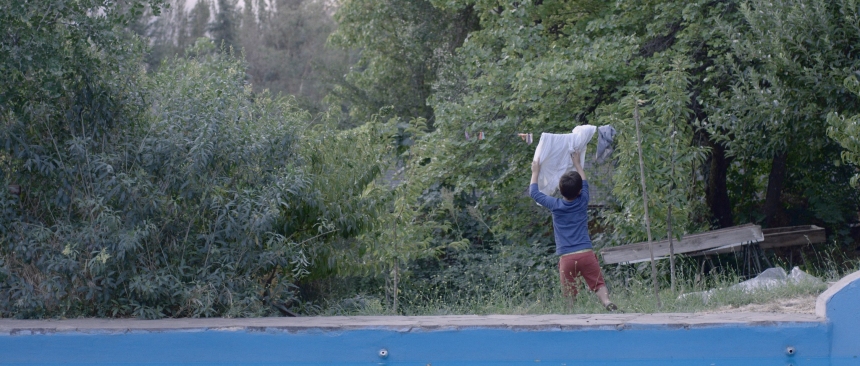Santiago 2019 Review: THE LONGEST DAY, Experiment That Rewards Contemplative Viewers
From Chile comes 'El día más largo,' directed by Diego Escobar.

There's a kind of theoretical cinema that I admire, the one with low stakes, where you don't actually put forward a plot, per se, but a concept, an idea, an experiment of what a film would look and feel like if one single idea is put forward all the way through.
Will it make for an interesting film? Will it be viable? The answers aren't always a definite yes or no, specially as everyone will have opinions of their own, but it gives birth to some of the most interesting contemplative, pseudo-experimental work that will be out in any given year. And although it isn't always succesful, it's always a good sign of a director who is growing, trying and willing to think outside the box.
That's the case with Diego Escobar's The Longest Day (El día más largo), which follows the simple question of what would happen with a kid if he was left alone after his family went to the airport to look for his brother who's coming back to the country, but they never come back and days pass by and he just has to live with the fact that he's incommunicated, unwilling to accept anything as certain or truth, and to survive with all the tools and knowledge that he has at his hand being as young as he is. What follows is a contemplative piece that sometimes manages to get into the interior world of the kid, while sometimes it leaves us outside, only to contemplate the silence and the emptyness of a house.
With its 60 minutes length, the film doesn't exactly overstay its welcome, but its stretches the concept as much as it can, and sometimes tires the viewer with certain repetitions. Nevertheless, the film follows almost like a series of plausible events from the point of view of a child, as the kid takes the delay first as a chance to hide some misdemeanors, have a messy breakfast, watch whatever he wants on TV, play games and videos on a cellphone, everything to later come crashing down (but without tears or cries), as his only mean of communication (the cellphone with which he played) loses all its energy and he can't find a charger for it.
That obliges the kid to move outside of his house, to explore the green scenery that surrounds him, trying to find explanations to what happened to him, but without having to tell anyone about it. He believes that he can make it on his own, and he isn't particularly worried if he doesn't make it; the innocence of a 10 year old kid, I guess.
But it's in that segment of the film that it starts to get a bit tiring to see the same sceneries, to see the same approaches by the kid to try to get his phone to work, and all that. It feels as if the experiment of this conceptual film didn't have anything else to support it underneath, but at least it feels good that this director made it all the way through without many bumps on the road.







